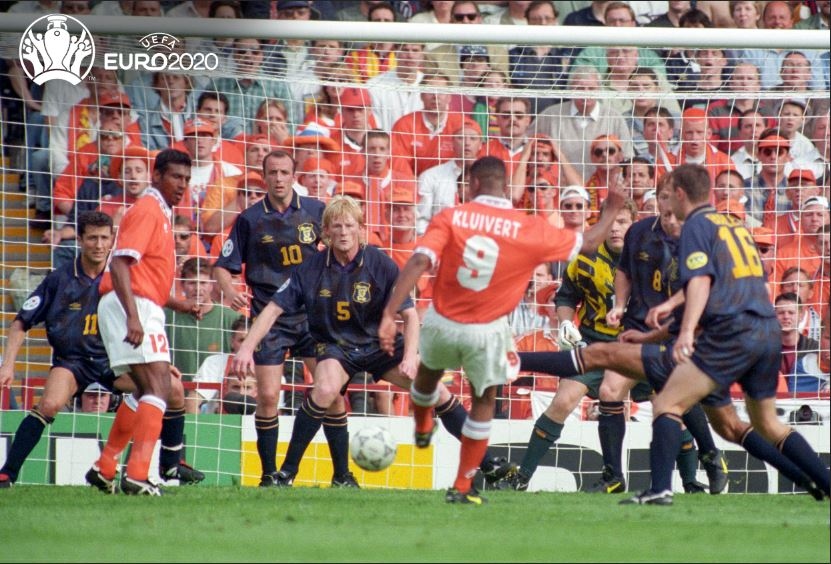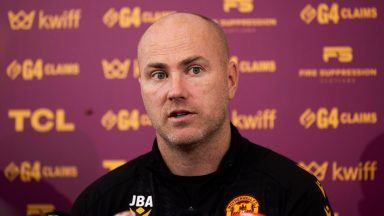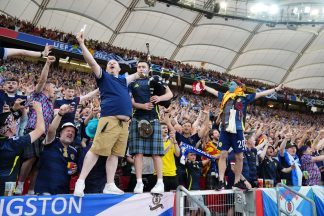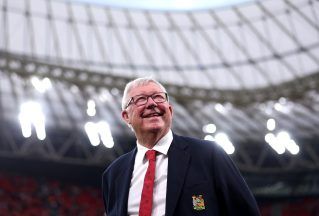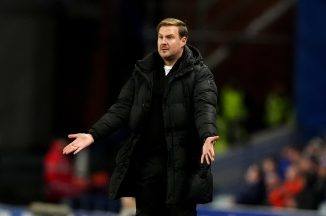After waiting decades to reach their first European Championships in 1992, Scotland were back just four years later.
With UEFA appointing England as Euro 96 host and expanding the size of the competition, Scotland had to be there.
A bigger party, and right on our doorstep? Missing out would have been unthinkable.
The national team was now in the hands of Craig Brown, the avuncular coach who stepped up to the top job after Andy Roxburgh’s resignation in 1993.
Brown steered the group through qualification, finishing second behind Russia and reaching the finals as one of the best runners-up. Now, his task was to do what had never been done before and take Scotland beyond the first round of a major tournament.
Battle of Britain

The draw pitted Scotland against Switzerland and Netherlands, with one team left to be picked and a 50% chance of it being Terry Venables’ England side.
“Will it be England and Scotland?” asked Barry Davies in his commentary on the draw ceremony. “107 meetings they’ve had. 43-40 it stands in England’s favour. Are we to have another one?
“Yes we are!”
Experience counted
Brown had evolved the squad since the last tournament and only eight players from Euro 92 were in his 22-man selection. Ten were aged 30 or over, with Aberdeen forward Scott Booth the youngest at 24.
The manager had a side heavy on experience and plenty of options across the field, but the first match provided a considerable test.
The Netherlands team was built largely on the Ajax side that won the previous year’s Champions League. Six of those players, including Edwin van der Saar, Clarence Seedorf, and Edgar Davids, were in manager Guus Hiddink’s starting line-up.
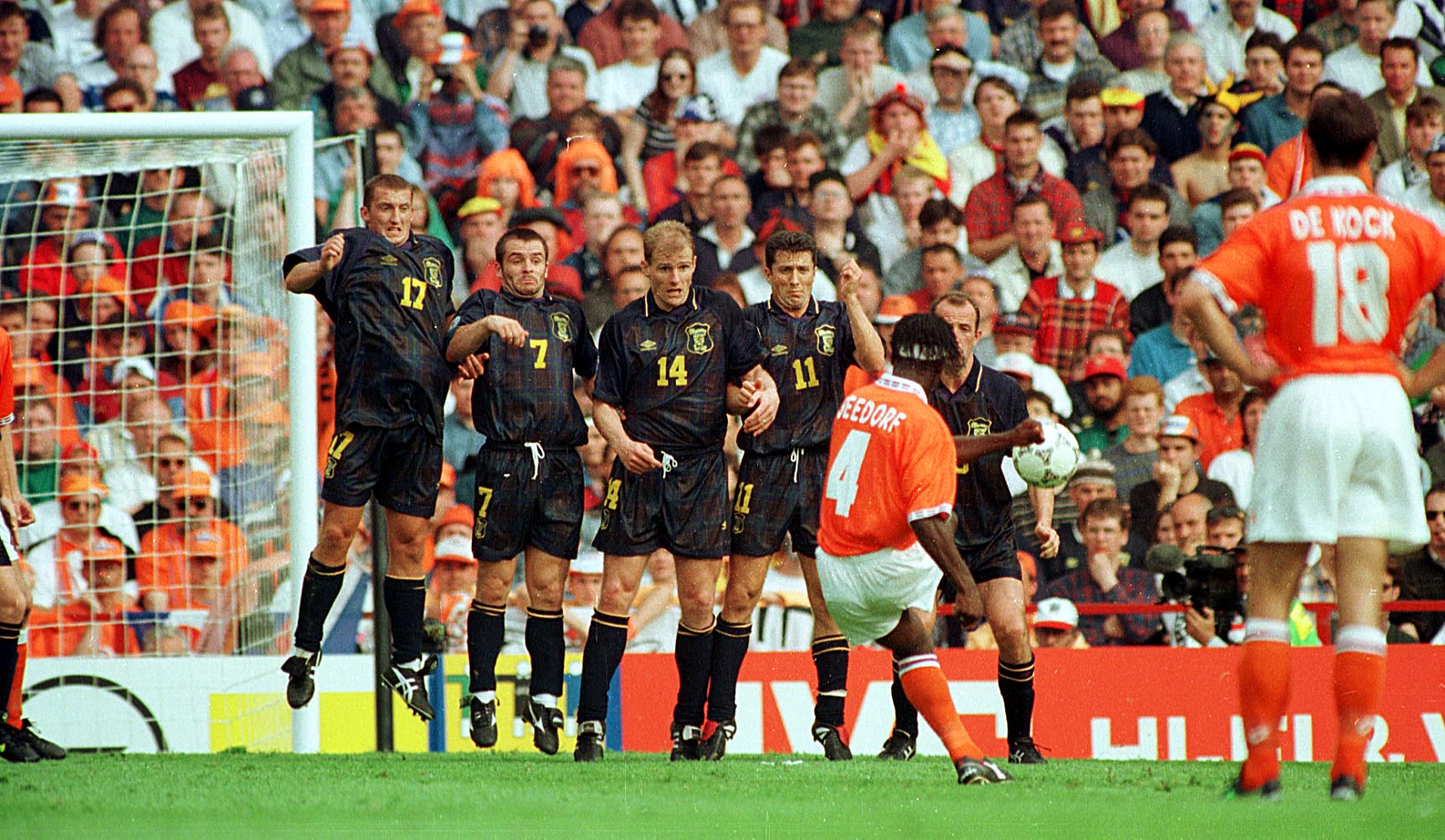 SNS Group
SNS GroupBrown sparked few major surprises when he named his team, but he had a big call to make in goals. Jim Leighton had been handed the number one shirt, but Rangers keeper Andy Goram was many people’s call as first choice.
Goram got the nod and didn’t let his manager down. The goalie made a reflex save from Gaston Taument early in the game and carried on from there as Scotland put in a stubborn performance to thwart a Dutch side that were clearly in the mood.
A Gary McAllister free-kick had Edwin van der Sar at full stretch, but Scotland chances were few and far between. Seedorf and Bergkamp both had opportunities in the first half, but the superstars of the Oranje couldn’t find the goal they wanted.
The second half delivered more Dutch chances, with Seedorf seeing a shot deflected over the bar, while a John Collins handball on the line was missed by the referee. But the final whistle came without Scotland conceding and with a point to show for their efforts.
It set things up nicely for the big one.
Heading down Wembley way
Though England and Scotland’s rivalry was in its 124th year, the pair had never met at a major finals.
While England were hoping that hosting duties could help the team repeat their 1966 success, Scotland’s focus was on emulating the 1967 team that taught the world champions a lesson.
It wasn’t going to be easy. England had a talented squad including the likes of Alan Shearer, Teddy Sheringham, Paul Ince and David Platt, as well as the central figure of the inimitable Paul Gascoigne.
Scotland fans couldn’t even dismiss Gazza as ‘not that good’ as he’d just won a league and cup double, as well as a couple of individual awards, in his first season with Rangers.
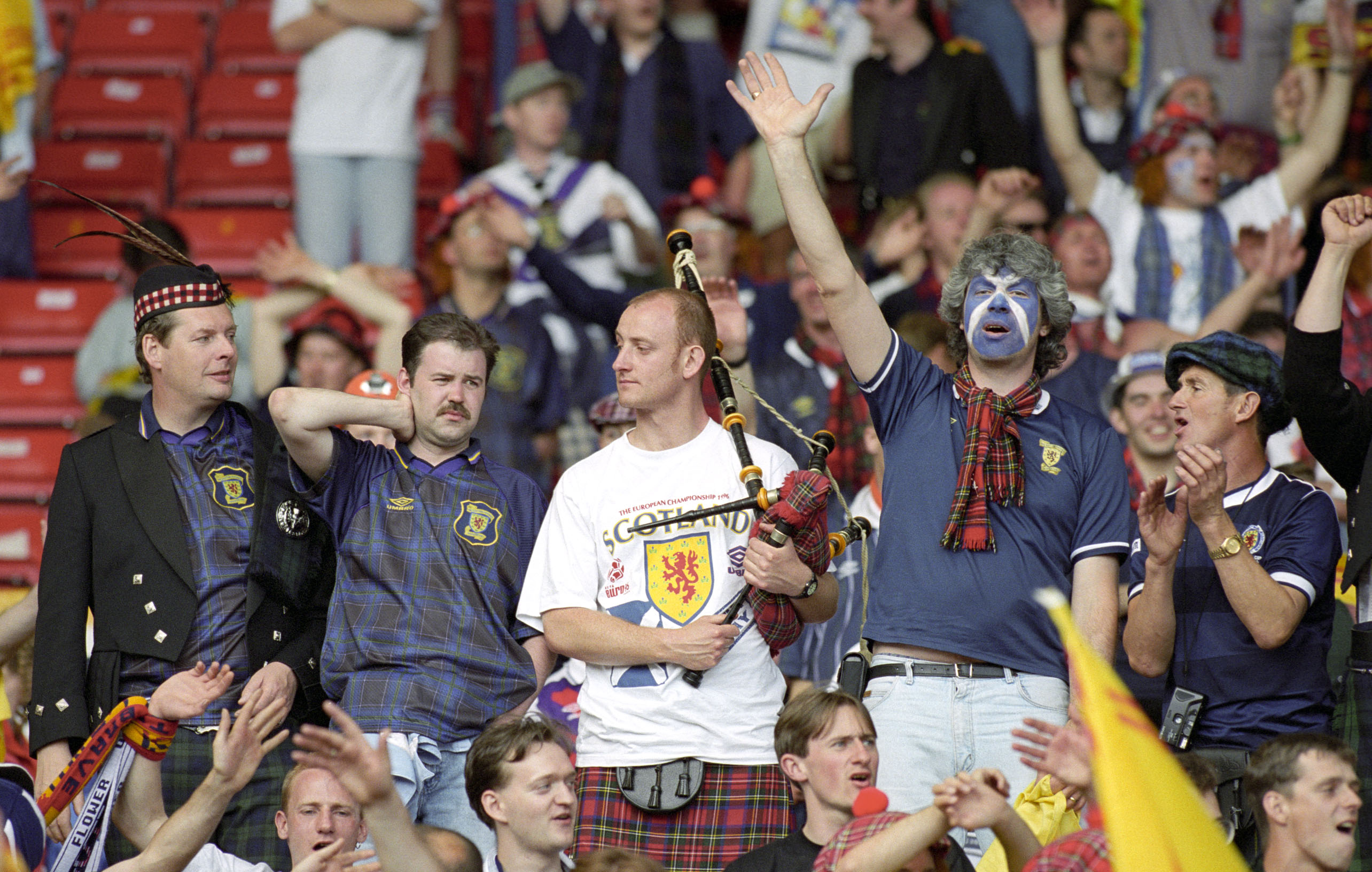 SNS Group
SNS GroupAt Wembley, with the home support confident “Football’s coming home”, Scotland’s travelling contingent were hoping to celebrate the greatest of all away days.
The first half showed Scotland had retained all the determination and discipline that served them well against Netherlands, with the midfield trio of Gary McAllister, Stuart McCall and John Collins impressing even if they couldn’t provide steady supply to John Spencer and Gordon Durie.
England were also having trouble carving out golden chances and the game was goalless at half time.
Less than ten minutes after the break, though, Darren Anderton released Gary Neville on the right, the Manchester United full-back crossed and Shearer showed why he was one of the best strikers in the world, finding space at the back post and steering a header beyond Goram.
With a lead to defend, England sat back as Scotland went in search of an equaliser. Their big chance came when Durie was brought down by Tony Adams and the referee awarded a penalty. McAllister, who had scored from the spot at the previous Euros, took responsibility.
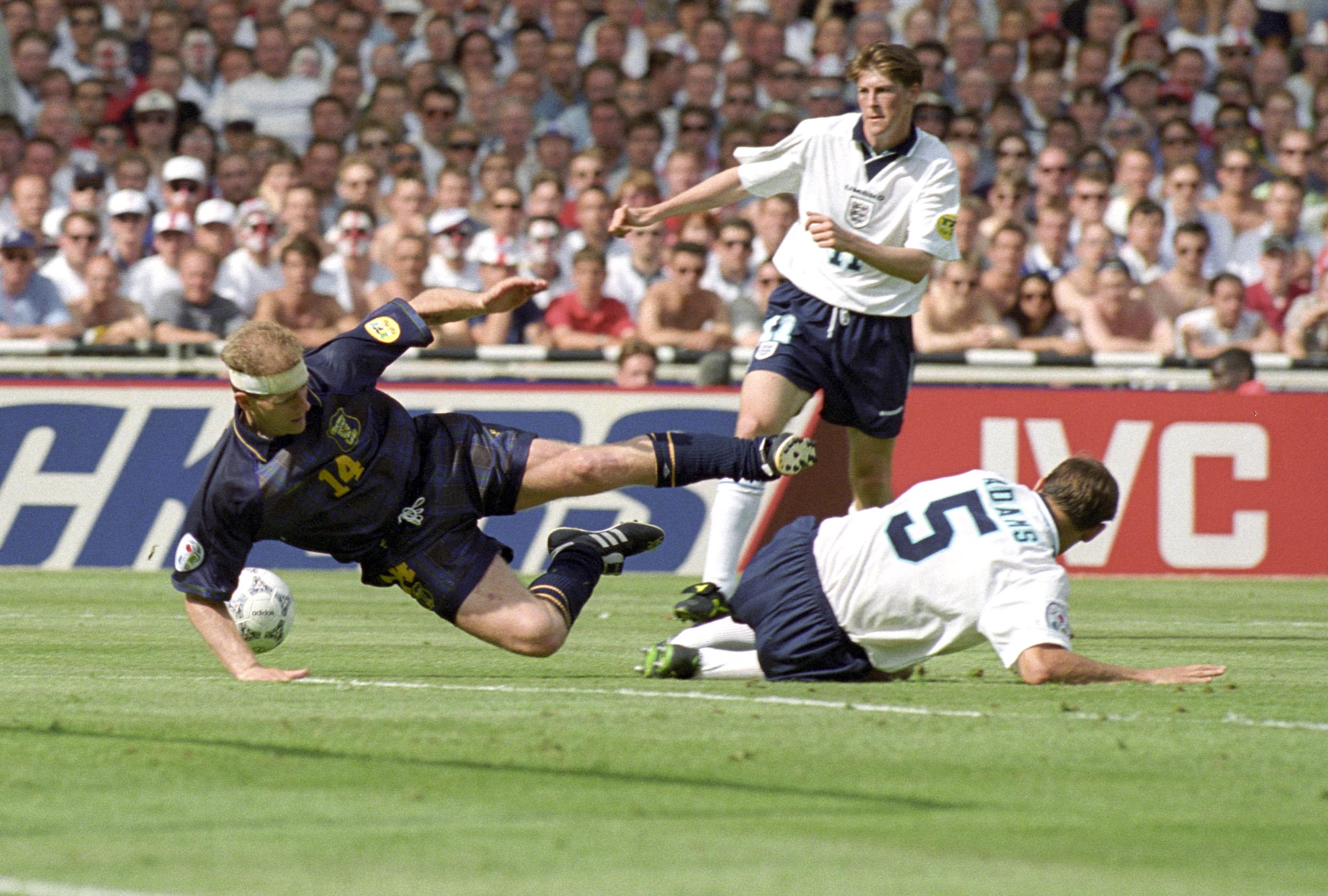 SNS Group
SNS GroupThe ball moved just before being struck, McAllister’s shot was stopped by David Seaman and every Scot had their head in their hands.
By the time they raised their eyes again, England were breaking up the park. Gascoigne collected the ball outside the Scotland box, lobbed Colin Hendry and smacked a volley past his Rangers teammate Goram to make it 2-0.
Game over.
Would the Swiss roll over?
Up next was Switzerland in a must-win game. The Swiss had drawn 1-1 with England in their opening match but followed it up with a 2-0 defeat at the hands of Netherlands.
Scotland’s chances of making the knockout stages were slim and depended not only on victory combined with England beating the Dutch, but also a five-goal swing. Plenty of Scots assumed that was well beyond reach.
Brown brought Chelsea’s Craig Burley into the team and handed a start to Ally McCoist, who had come off the bench against England and was still in search of a first goal at a major finals.

The night’s drama began at Wembley where Shearer put England ahead from the spot. So far, so good but with Scotland still needing a goal and more.
McCoist delivered in style after 36 minutes. The veteran striker thumped a shot from outside the box that curled inside Marco Pascolo’s near post. Now it might come down to goal difference.
Back at Wembley, things were going England’s way and to Scotland’s advantage. Sheringham made it 2-0, then Shearer struck again and Sheringham made it four. In the space of 11 second-half minutes, the hugely improbable had become entirely possible.
Scotland threw Colin Hendry forward as they pushed for a second goal, but when news of the 4-0 scoreline at Wembley filtered through, he was hastily restored to the heart of the defence. Never a high-scoring team, Brown had clearly realised hopes were better resting on a solid back line.
Still, with 13 minutes to go, Scotland were heading to the knockout rounds.
Dutch devastation
With their own hopes looking beyond shaky, the Dutch made a change at Wembley, putting Kluivert on for Peter Hoekstra. The young forward, who already had a Champions League-winning goal to his name, slotted the ball through Seaman’s legs to make it 4-1.
In normal circumstances, the final goal in a defeat like that is a mere consolation. Not when it comes to the Scottish football team. Kluivert’s goal put Netherlands and Scotland level on points, inseparable on the head-to head after their draw, and with the same goal difference.
But it also put the Dutch ahead on goals scored, and there ended Scotland’s hopes.
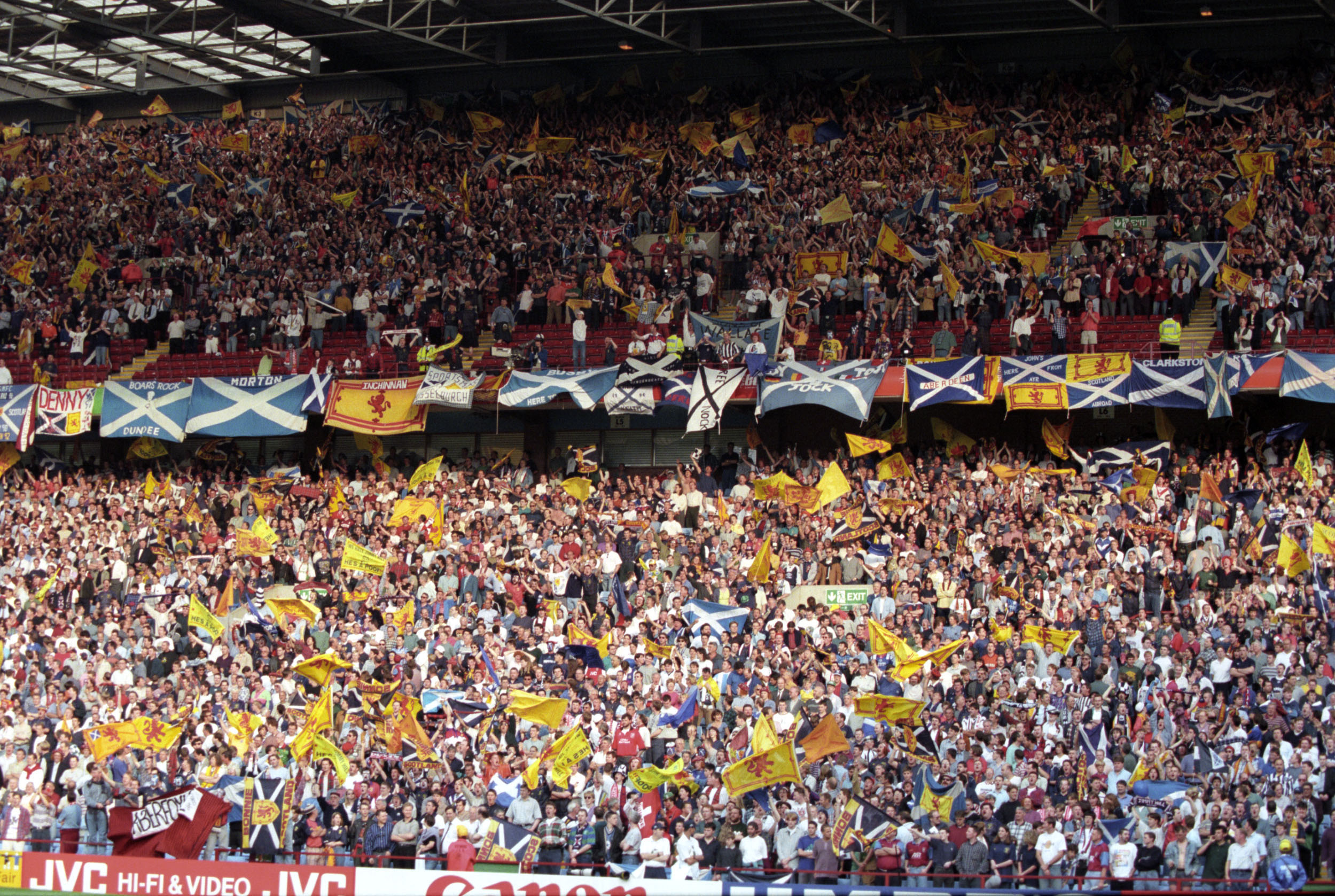 SNS Group
SNS GroupThe team returned north bitterly disappointed but with no little credit.
A second Euros left the nation with a record of six played, two won and one drawn having faced some of the continent’s toughest teams.
Nobody would believe it would take 25 years for a chance to add to that record.

